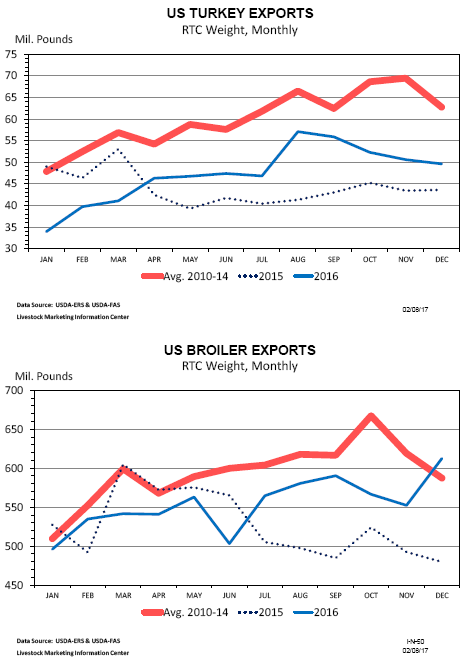



CME: HPAI-infected Poultry Barred from Entering Food System
US - A case of highly pathogenic H7 avian influenza (HPAI) was confirmed in Lincoln County, Tennessee chicken breeder flock this past weekend, according to the Steiner Consulting Group, DLR Division, Inc.The flock of 73,500 birds were euthanized and the property quarantined consistent with USDA-Animal Plant Health Inspection Service (APHIS) mandates. Meat from the birds will not enter the food system. This was the first confirmed case of HPAI in commercial poultry in the US this year.
Chicken breeder flocks produce the eggs and chicks that provide the meat-type chickens or eggs that end up in the grocery stores or foodservice establishments, so the flock where the HPAI was discovered was actually one step removed from most chicken consumed by the public.
Breeder hen meat is usually further processed for use in soups, pot pies, or similar food products. As of 1 February, the USDA estimated that the US broiler-type hen flock was about 55 million birds.
The worst outbreak of avian influenza was in 2015, but the broiler (meat-type chickens) industry was able to avoid any direct losses of birds. The turkey and egg industries were not so lucky. Egg production in 2015 declined 5 per cent from the prior year and turkey production was down 2 per cent.
The mid-section of the US, categorized as the Mississippi Flyway, was the region most affected by the disease. Wild, migratory fowl are considered to be the main source of the disease and the spring migration of these birds from the Gulf to Canada was key to the timing of the disease outbreaks.
In 2015, the first outbreak of avian influenza in a Minnesota turkey flock on 6 March. The second and third instances came on March 8 and 10 in turkey flocks in Missouri. For the most part, the disease ran its course in the Mississippi Flyway by the end of the first week in June.
Even though broiler-type chicken production was unaffected by avian influenza in 2015, consumer concerns about the product arose. The impact on demand from the discovery of HPAI in recent days becomes a focal point for the US meat industry and global meat markets. South Korea has already announced a ban on imports of poultry from the US within a day of the USDA-APHIS news release.
The case for economic damage from the disease due to consumer demand was obvious for turkey in 2015, with exports declining sharply in the month following when the disease was discovered. Turkey exports have yet to fully recover. The effect on chicken was not so sudden in 2015, but there were still trade barriers attached to US chicken products in world trade that took more than a year to run their course.
US chicken exports in 2015 fell 13 per cent from the prior year, followed by a 5 per cent rebound in 2016. Prospects have been encouraging for a similar improvement this year, but this still leaves exports below the 2014 total.
The importance of exports to the chicken industry cannot be over-estimated, as competition from additional supplies of pork and beef in the domestic market becomes more intense.









